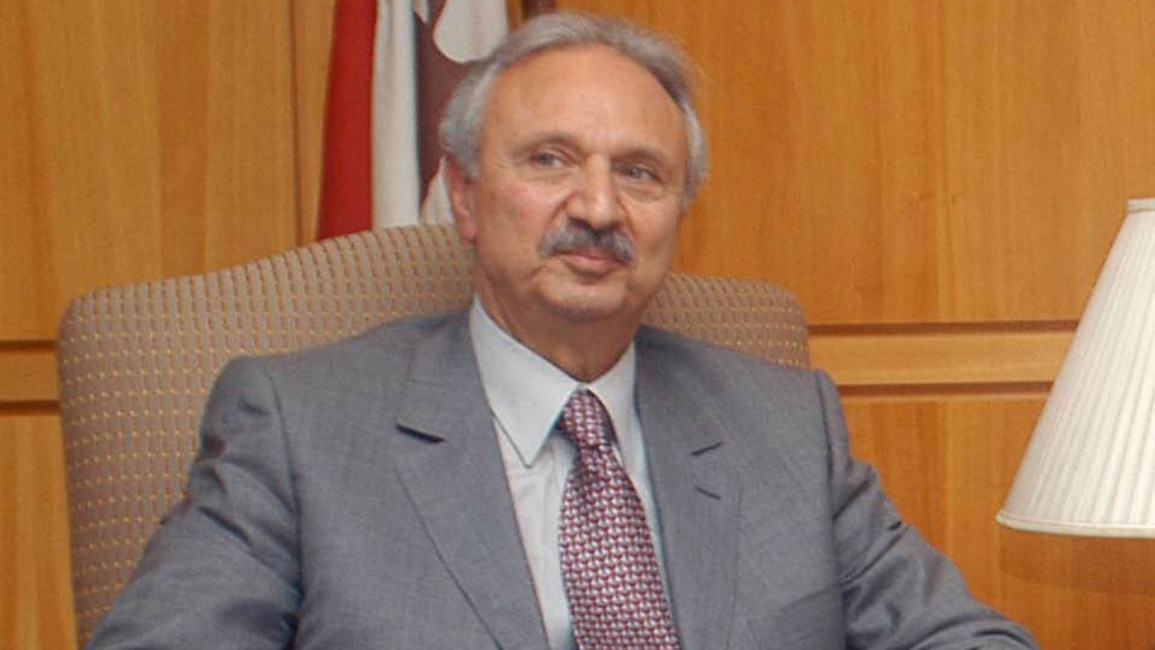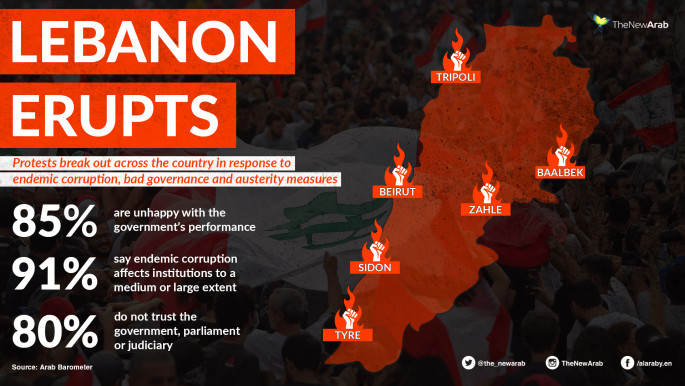Lebanon tycoon withdraws PM job under protest pressure
Wealthy 75-year-old businessman Mohammed Safadi said Saturday it would be difficult to form a "harmonious" government in the country rocked by a month of unprecedented nationwide protests demanding radical reform.
The tycoon said in a statement that he hoped outgoing prime minister Saad Hariri, who resigned on October 29 under pressure from the street, would be reinstated.
Protesters, who see Safadi as emblematic of a corrupt and incompetent establishment, had reacted angrily on Friday to media reports that key political players had chosen him for the top job.
Although there was no official confirmation of his nomination, demonstrators gathered in front of one of his properties in his hometown of Tripoli to protest against what they regarded as a provocation.
Twitter Post
|
It came as the US embassy in Lebanon on Saturday expressed support for the cross-sectarian protest movement that has swept the Middle Eastern country since October 17.
"We support the Lebanese people in their peaceful demonstrations and expressions of national unity," the embassy said on Twitter.
Several mass rallies are planned for Sunday in cities across Lebanon to keep up the pressure on the country's rulers, widely seen as irretrievably corrupt and unable to deal with a deepening economic crisis.
Some local players, notably the powerful pro-Iranian Shia movement Hezbollah, have accused "external parties" and Western embassies of supporting the popular uprising, including through financial backing.
On Saturday, a so-called "revolution bus" traversed the multi-religious country from north to south, decorated with the names of protest hotbeds.
According to protesters, the initiative sought to break down geographical and sectarian barriers and overcome the collective trauma of the 1975-1990 civil war.
The protest movement first erupted in opposition to a proposed tax on calls made via free phone apps, but it has since grown into a cross-sectarian outcry against everything from perceived state corruption to rampant electricity cuts.
Demonstrators say they are fed up with the same families dominating government institutions since the end of the 1975-1990 civil war.
The government stepped down on October 29 but stayed on in a caretaker capacity and no overt efforts have so far been made to form a new one, as an economic crisis has also battered the country.
Protesters have demanded a new government be composed of experts not affiliated with any of the traditional political parties.
But on Tuesday President Michel Aoun argued in a television interview that a government made up solely of independent technocrats would not represent the people or be able to set policies.
"Where should I look for them? On the moon?" he said, suggesting that Lebanese who did not see any decent person in power should "emigrate".
His words fuelled rage on the streets, with protesters saying they would press with their movement until their demands are met.




